The 482 KM between Nairobi and Mombasa can be covered in about 50 minutes by plane.
Our journey to Mombasa started with a drive to the Nairobi train station. Normally a 20 minute drive it turned into a 2 hour engagement with heavy traffic due to rain. There’s always an excuse for traffic; be it rain or snow. The scheduled departure was 7:00 PM; the requested arrival time was 6:00. Our actual arrival was at 6:40. But as luck would have it or whatever that thing might be, the train was delayed … 2 hours … due to the rain. So no fretting was required on our journey to the station; none was expended.
At 9:30 we were called for dinner where we were provided a modest offering topped off with fresh fruit salad, which I declined based on the advice of my Canadian medical support team (only unpeeled fruit).
We then retreated to our cabin where the beds were made and ready to embrace. The porter instructed us to lock our cabin door and keep the windows shut. There was no explanation offered. I was hesitant to ask. It spawned a series of dark images that ended with bands of marauding monkeys climbing down from the roof of the train into open windows. However likely that scenario may have been I thought the truth lay closer to the thunderstorm and heavy rain that was predicted. But that didn’t explain the doors.
As the train moved towards our destination, under the full moon one could see what appeared to be savanna; grassland with low bushes and the typically shaped African trees. In this light the bushes looked like herds of animals: elephants; buffalo; giraffe. There were only a few lights that appeared infrequently along the route. Sparse population? Expensive electricity? Lack of Service?
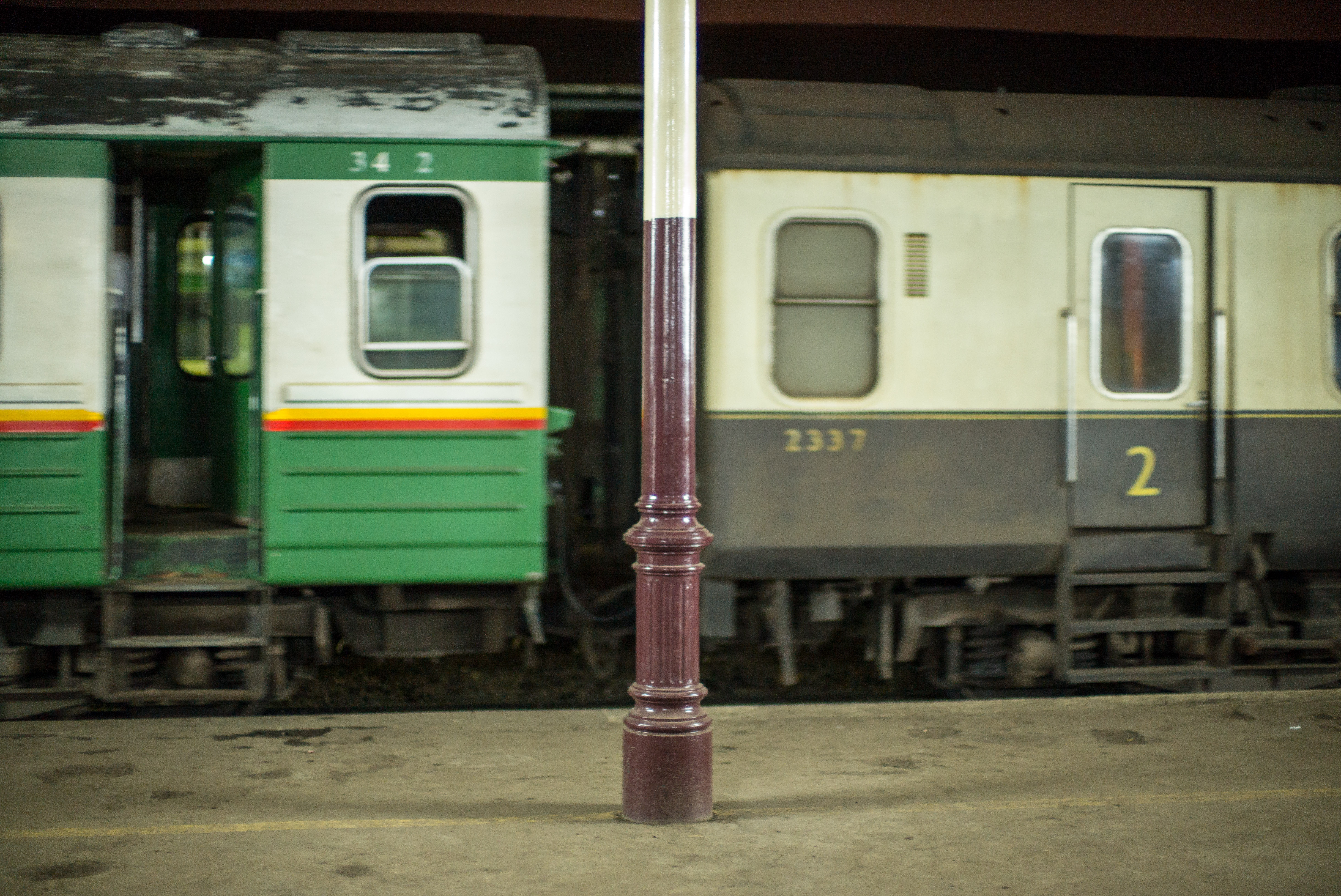
The train seemed to be of British design possibly from colonial times. Everything was well-worn–tired–suggesting the train had seen its prime some 50+ years earlier. But it was clean; the hole-in-the-floor facilities did not smell. The corridor was narrow, maybe 30 centimetres. There was no way people could pass each other without one stepping into a cabin. Each cabin had two births, an upper and lower. A counter which opened to reveal a sink. A narrow closet. The lighting was sporadic; sometimes working; other times not. Sometimes it would take several minutes after flicking the switch to release the light from the bulb. The neighbouring cabin had no lights at all. We had a flashlight; contingency.
The train rocked back and forth. It made all sorts of sounds. The guttural tones of the Diesel engine could be heard along with the light smell of its fumes. It never felt we were at risk but the train never seemed to go very fast either.
The train stopped frequently. Picking up and dropping off passengers along the way.
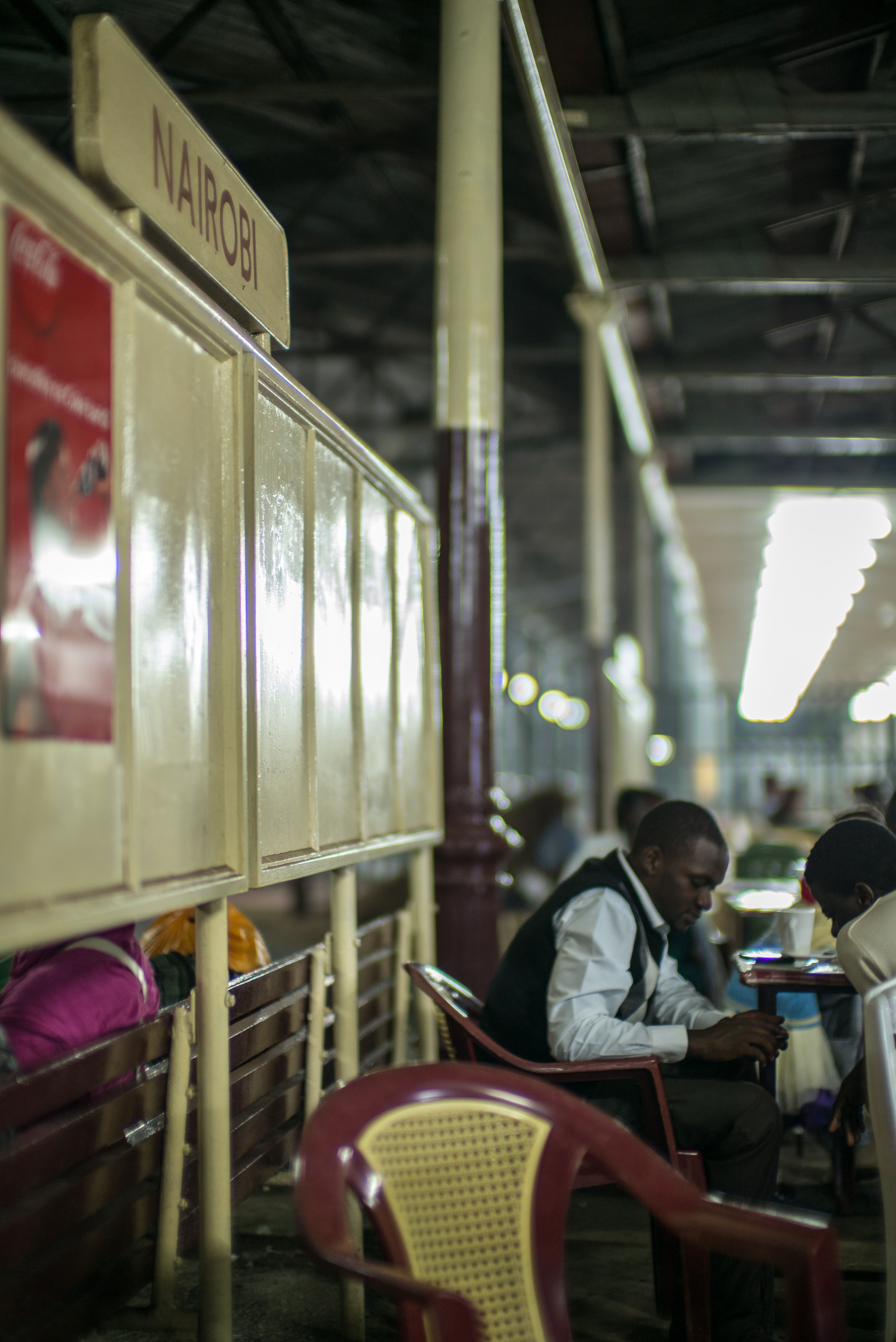
Train Station
The train from Nairobi to Mombassa is scheduled to depart at 7PM and arrive the following day at 10AM. Our journey begins with an announced two-hour delay.
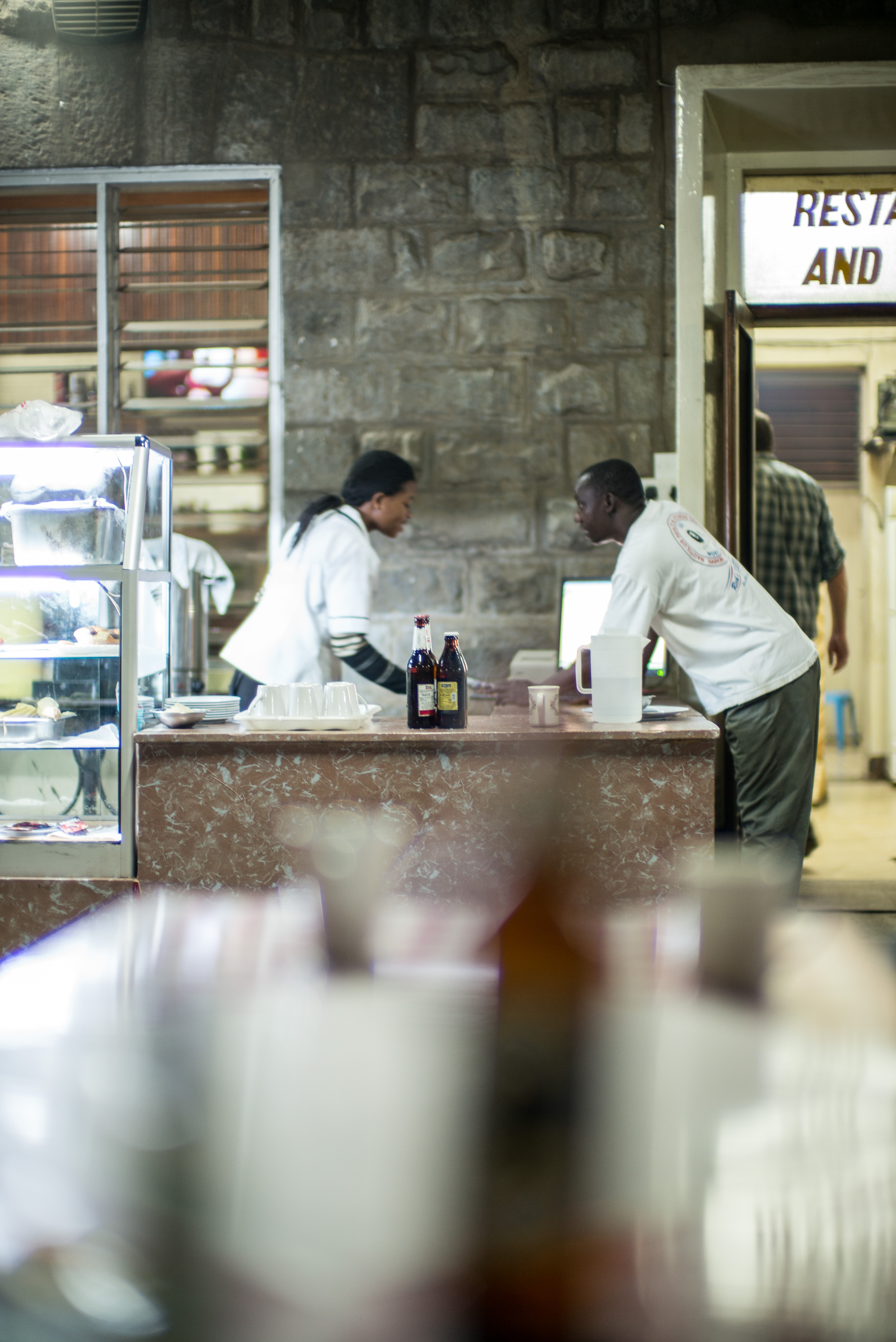
Passing time
During the delay we passed the time in the track-side restaurant with friends and a beer.
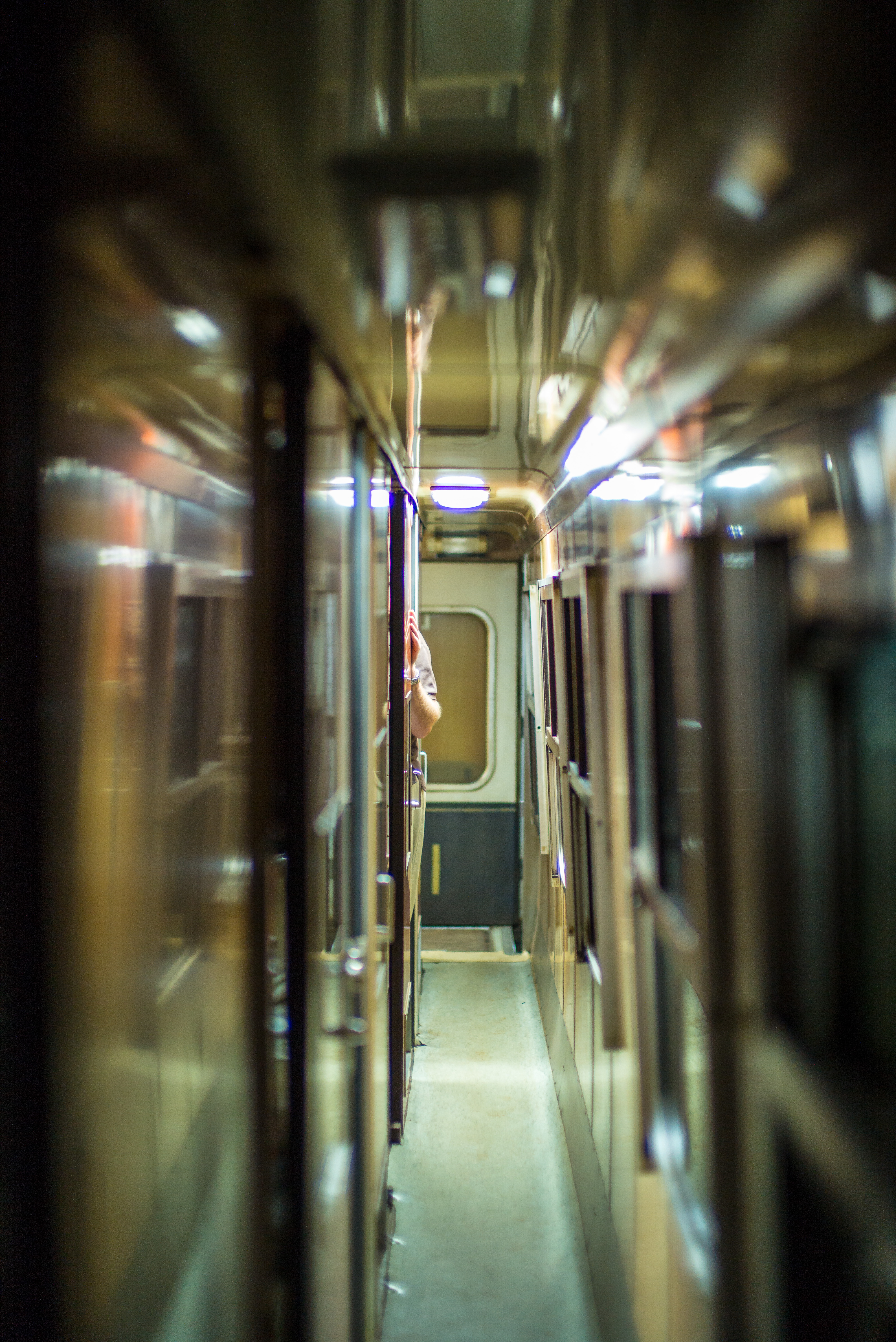
Narrow Passage
The passage connecting the two-berth suites
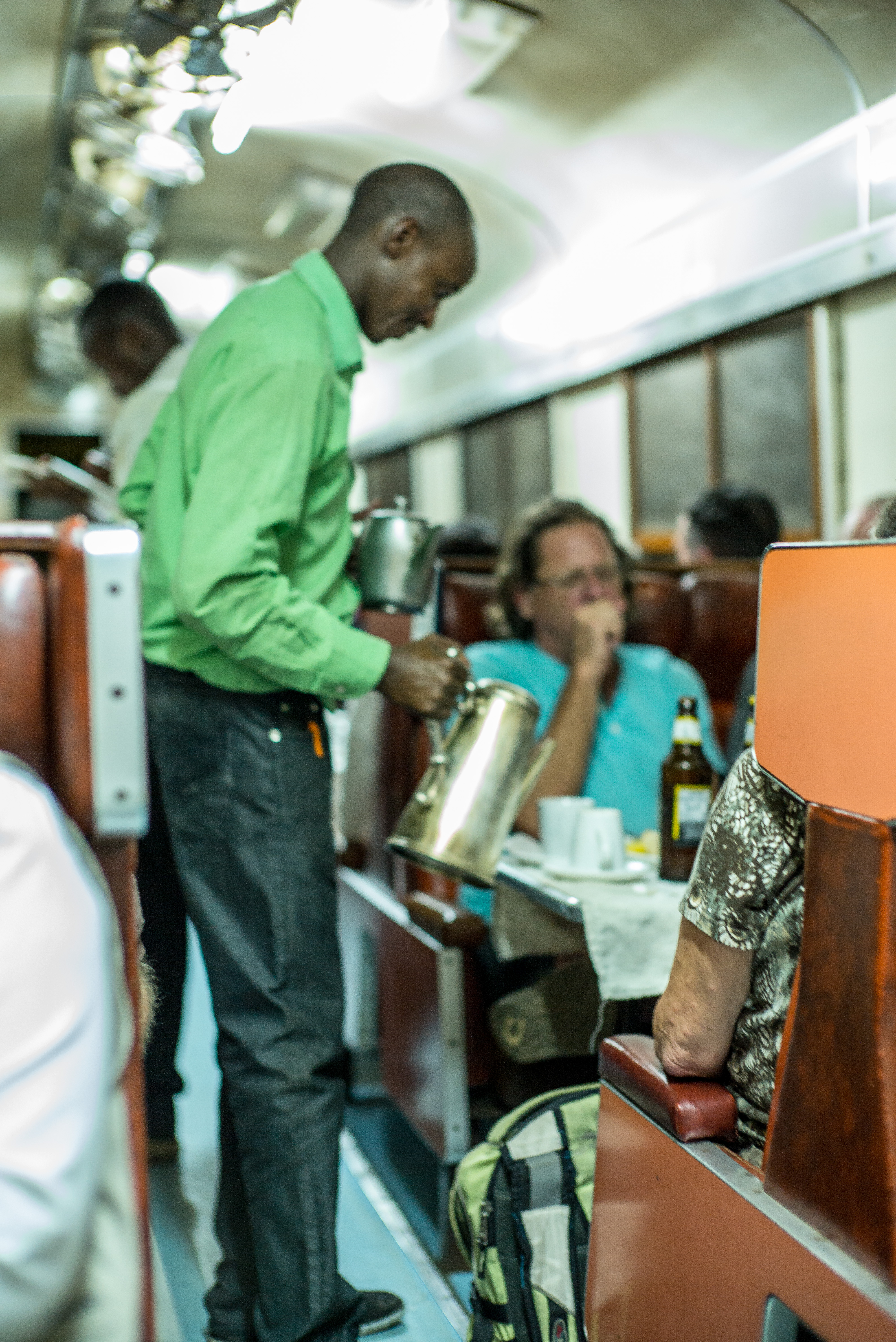
Dinner
Dinner in the first class dinning car; palatable, but not extravagant by any measure.

The suite
A narrow ladder provides access to the top bunk. Negotiating the climb and the ensuing “twist and flip” to land in the bed is a challenge on a moving train.

Leave a Reply